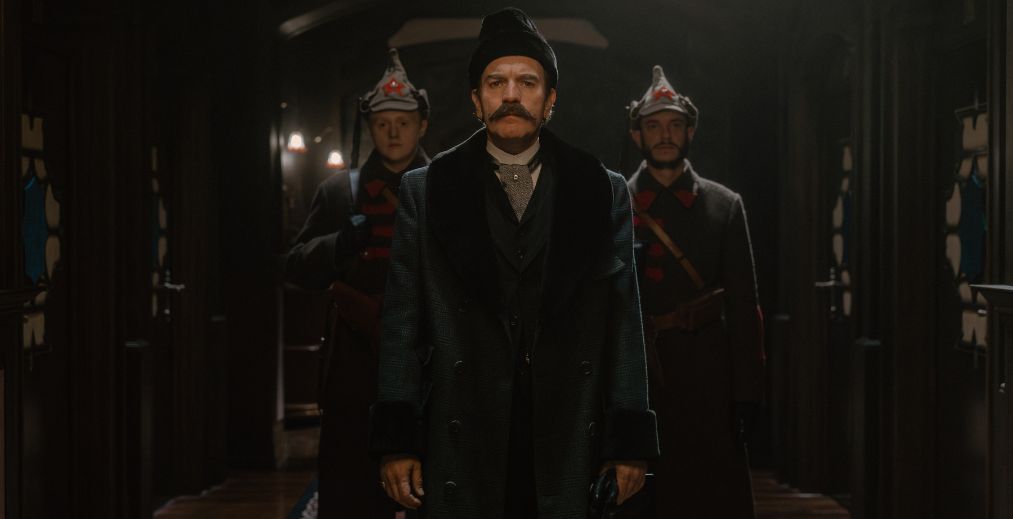With time, people die, colours fade, and the old gives way to the new. It’s a sentiment that Count Alexander Rostov (Ewan McGregor) finds all too resonant as an aristocrat in post-revolution Russia. Yet, it’s also a statement that finds newfound force, life, and whimsy in A Gentleman in Moscow. Though set in an increasingly bleak period of history, the series never fails to lend its tale with a distinct brand of heart and humour. Even in its darkest moments, it burbles with spirit, colour, and, most of all, humanity. While the show can threaten to become a mite too saccharine, it paints a vivid portrait of a life spent in a gilded cage. One that feels equal parts heartwarming and soul-shattering.
Adapted from Amor Towles’ novel of the same name, A Gentleman in Moscow begins in 1921 amidst a newly communist Russia. It’s here where Count Rostov is sentenced to house arrest in the historic Metropol Hotel by a Bolshevik Tribunal. Gone are his official title, family estate, and lavish suite—what remains is a servant room in the hotel’s attic. The ex-count forges on, fostering new relationships with the hotel’s staff and guests. The most impactful of which include the young, precocious Nina (Alexa Goodall), rising actress Anna Urbanova (Mary Elizabeth Winstead), and the commissioner of the secret police, Osip Glebnikov (Johnny Harris)
With each episode, years and even decades pass. The Soviet Union sees radical regime change, a corruption of communist ideals, and a growing number of deaths. But within the stifling grandiosity of the Metropol, little changes. While the malaise of being trapped in a single location might overcome some, Rostov remains in unusually high spirits. An approach that becomes a crucial and moving act of defiance, allowing him to find freedom in his ornate prison.
McGregor’s turn as Count—or should we say citizen—Rostov is the glue that holds A Gentleman in Moscow together. In a show that often veers toward overly sentimental emotion, he grounds it with nuance and sincerity. Rostov is never relegated to being a tragic victim of circumstance but an agent of his own fate. He’s a man who is as honourable as he is hypocritical, forced to reckon with the mistakes of his past. All the while, he navigates the perils of the present and the deeply fulfilling, tragic relationships that come with them.

In McGregor’s deft hands, Rostov is never made a monolith. He’s flawed, uplifting, eloquent, and powerless, traversing many emotions despite being fixed in one place. With each twirl of his wonderfully royal mustache, McGregor cements a character who feels as dynamic as the ever-changing country surrounding him. He’s key to how seamlessly A Gentleman in Moscow navigates the conventions of comedy and tragedy.
The wounded but beautiful heart of Russia beats within the Metropol Hotel inside each of its rich characters. Whether it be a heated head chef, a conniving secret police agent, or a struggling actress, each eclectic persona lends texture and a sense of whimsy to a story about bleak political circumstances. The series’ power lies in how each relationship develops, transforms, and, sometimes, gets brutally cut short.
Arcs centering on clandestine romances, growing father-daughter bonds and spy craft are all interwoven with care and earned emotion. Add in a secret narrator whose identity is slowly revealed, and A Gentleman in Moscow feels more like a vibrant historical fairytale than anything else. It becomes a dreamlike analog to films like Amelie and the McGregor-starring Big Fish, taking us through mature and somber moments with a storybook-like quality. It’s an effect beautifully reinforced by the light, airy, and childlike orchestral score.
A Gentleman in Moscow revels in the milieu of its historical setting. It vividly basks in the ideological debate, bloodstained statecraft, and ever-shifting vision of a post-Romanov Russia. The living, breathing production design does a stellar job of embodying the instability of this era, morphing from an extravagant, cosmopolitan dream to a desaturated and splintering hulk. The Metropol becomes both a monument to a decadent past and the rotting corruption of the present. Through such an impactful visual approach, the series becomes a stirring marriage of history and storybook whimsy.
Rome wasn’t built in a day, but Rostov quickly notes, “It was burnt down in one.” It’s in capturing this flurry of change where A Gentleman in Moscow’s dreamlike story resonates. While it can be a bit too mawkish in certain moments, especially in its handling of certain antagonists and plot conveniences, it never fails to render history in a moving, dreamlike fashion.
A Gentleman in Moscow streams on Paramount+ on March 29th
A Gentleman in Moscow
-
Rating - 8/108/10
TL;DR
It’s in capturing this flurry of change where A Gentleman in Moscow’s dreamlike story resonates. While it can be a bit too mawkish in certain moments, especially in its handling of certain antagonists and plot conveniences, it never fails to render history in a moving, dreamlike fashion.







